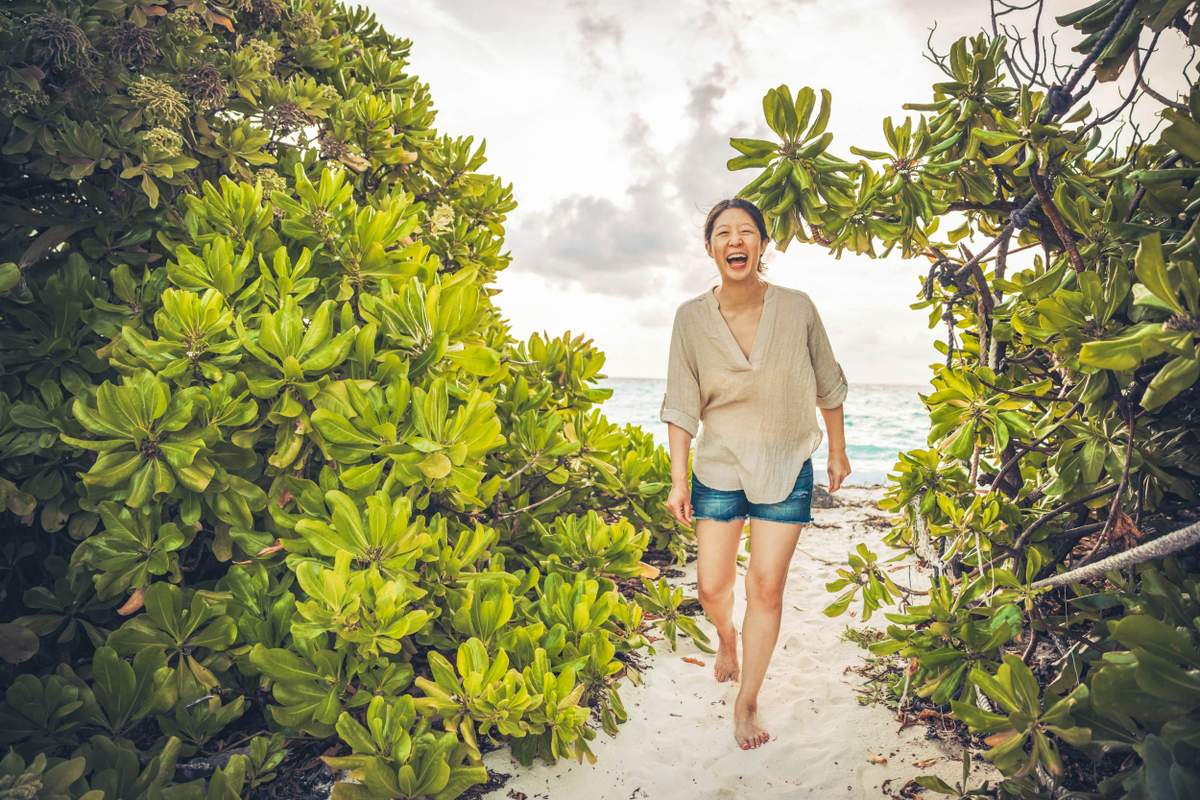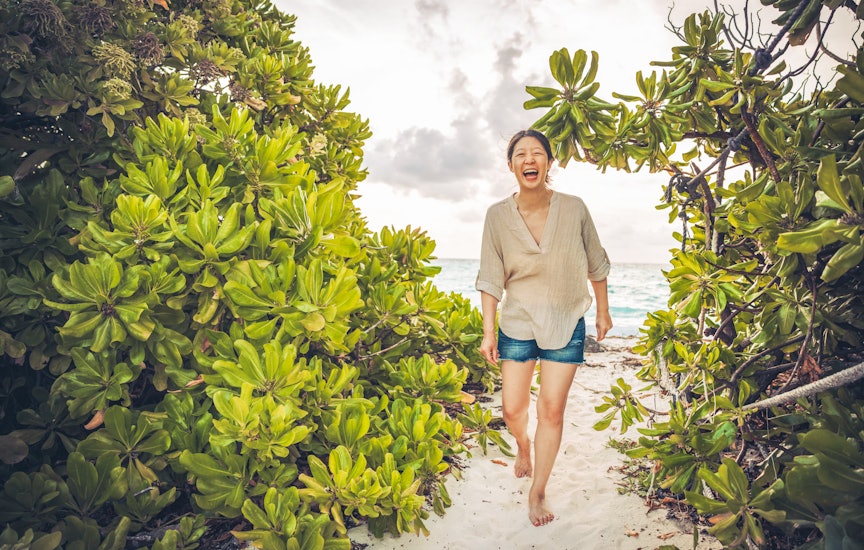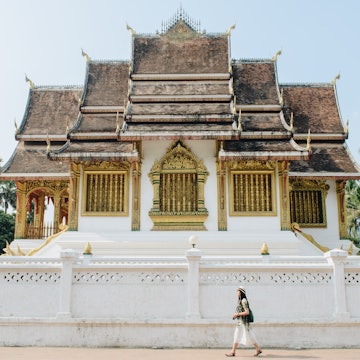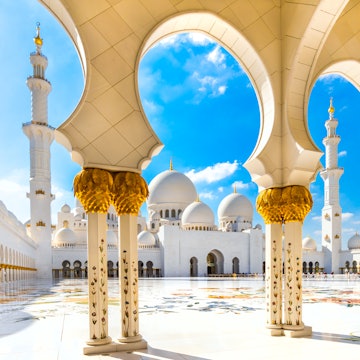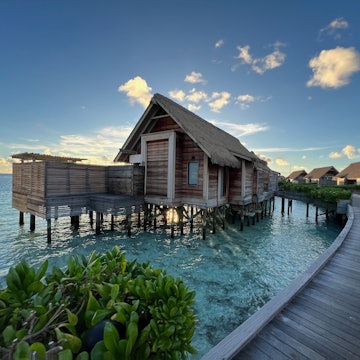

Experience the best of the Maldives with these unmissable places to visit © Thomas Barwick / Getty Images
The fabulous diversity of the Maldives means there’s an island for every type of tourist, from budget travelers to adrenaline junkies who dream of exploring beneath the waves.
So whether you’re a first-time visitor on honeymoon or coming back again to gain a deeper insight into the region, here are our picks of the top places to visit in the Maldives.

1. Raa Atoll
Best for the diverse marine life
The Raa Atoll, a 45-minute seaplane journey from Male’s Velana International Airport, comprises 88 islands. Its diverse marine life, combined with its proximity to the UNESCO Baa Atoll Biosphere Reserve, makes it a great destination for divers, many of whom come to see the manta rays that head to this part of the Indian Ocean to raise their young.
Raa Atoll resorts worthy of a spot on your bucket list include Heritance Aarah, which has fantastic sustainability credentials as the Maldives’ first LEED (Leadership in Energy and Environmental Design) Gold resort. It’s also got a brilliant on-site museum, where various artifacts and a replica of a traditional Maldivian village provide a wonderful insight into the region’s history.
Additionally, the Cora Cora Maldives resort has a dive school that offers a huge range of qualifications, including Bubblemaker courses for children who fancy heading beneath the waves for the first time.
2. The Fari Islands
Best for luxury
A new concept for the Maldives, the North Male Atoll’s Fari Islands development currently comprises two resorts. The Patina Maldives attracts a young stylish crowd with its minimalist over-water villas designed by Studio MK27 and a boutique filled with clothing curated by fashion magazine The Rake. There's also a huge focus on art, the highlight of which is American artist James Turrell’s Skyspace, a hollow wooden structure that affords unique views of starry night skies.
At the Ritz-Carlton Maldives, butler service comes as standard, and youngsters are kept occupied by the enormous video console-filled kids club. In 2025, a third resort, the Capella Maldives, will be added.
3. Crossroads
Best for the range of accommodation
Crossroads is another multi-resort complex, and it was one of the first in the Maldives. It’s also a destination in its own right – in addition to the Hard Rock Hotel Maldives, Saii Lagoon Maldives and SO/ Hotel Maldives, there’s a beach club and marina. Its proximity to Male’s Velana International Airport – it’s just a 15-minute speedboat ride away – means visitors whose seaplane flights are delayed (a regular occurance, given seaplanes are unable to fly at night) no longer have to stay in the notoriously basic hotels in the center of Male, but can head to one of Crossroads’ three resorts, instead.
Planning tip: Got a painfully early flight home after your holiday? Rather than spending your final night in Male, where there are limited hotels, book a night at one of Crossroads’ hotels instead.
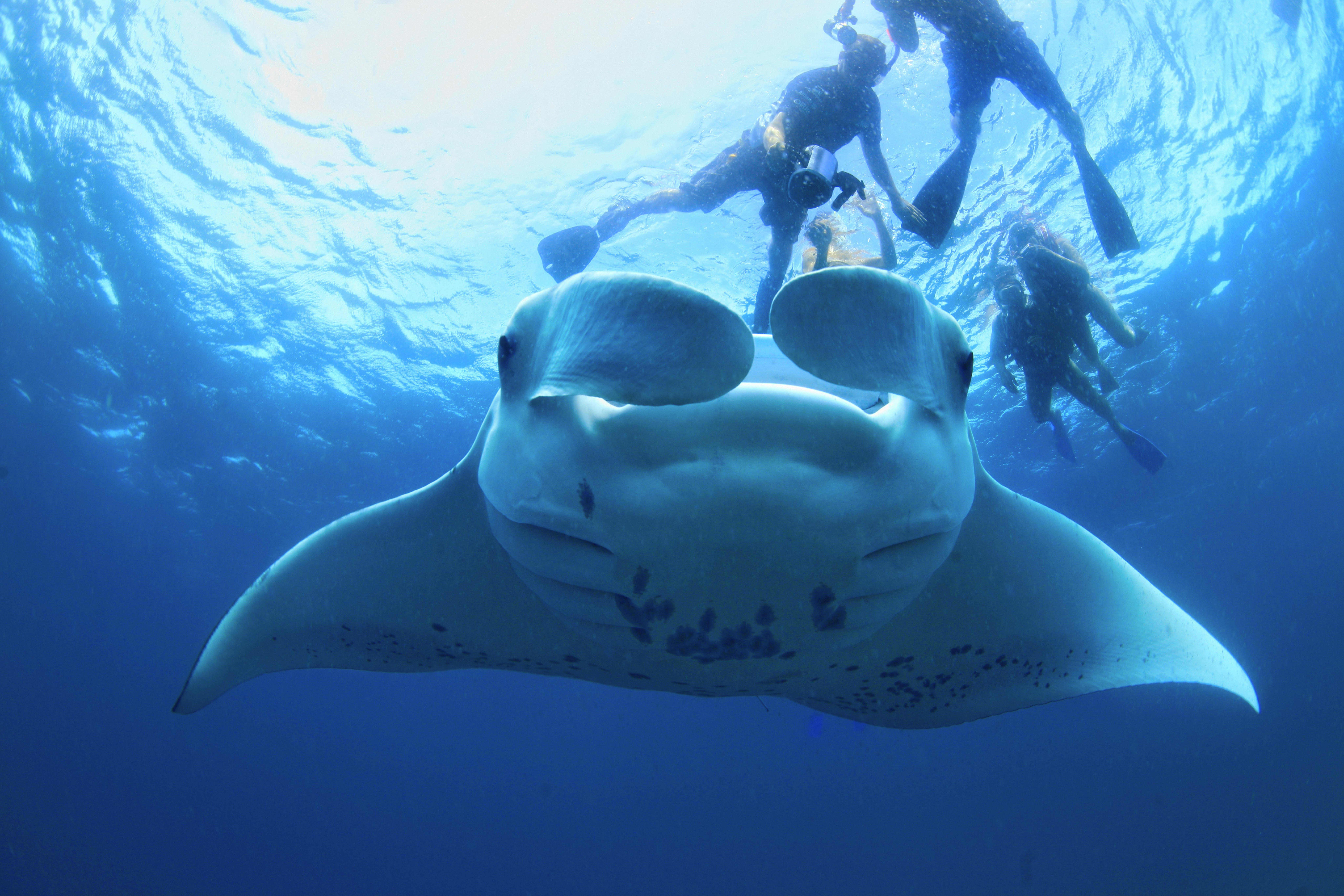
4. Baa Atoll
Best for wildlife-spotting excursions
Baa Atoll is another popular destination for divers, snorkelers and anyone keen to check out the region’s marine life. This is where you’ll find the UNESCO-listed Baa Atoll Biosphere Reserve, home to one of the Maldives’ largest coral reefs and a magnet for a wide range of species. Many visitors come to this atoll to spot manta rays – it’s home to Hanifaru Bay, where thousands of the creatures regularly gather to feast on plankton carried here by the Indian Ocean’s currents. We recommend booking a stay at Vakkaru Maldives, which offers big five diving safaris designed for guests hoping to see manta rays, whale sharks, turtles, dolphins and blacktip sharks, all of which thrive here.
Planning tip: If spotting mantas is a priority, aim to visit the Baa Atoll between June and November.
5. Laamu Atoll
Best for remoteness
One of the least developed atolls, Laamu in the southern Maldives is known for its lush vegetation, palm-fringed beaches and fabulously clear night skies (several resorts here have in-house astronomers). There’s just one resort on this atoll – the Six Senses Laamu, which is one of the best Maldives resorts for marine life due to its collaborations with the Manta Trust, Blue Marine Foundation and Olive Ridley Project, founded to protect endangered turtle species. A large number of liveaboards (boats with onboard accommodation for divers keen to visit multiple atolls) operate here.

6. Local islands
Best for culture vultures
There are hundreds of so-called "local islands" in the Maldives – islands which aren’t home to resorts, but local communities of Maldivians, many of whom work as fishers. While certain resorts offer day trips to local islands, it’s also possible to stay on one, in homestay-style accommodation owned by locals. These include Maafushi, which is connected to Male via a regular ferry service; Fulhadhoo, which is a two-hour speedboat ride from Male and located on the wildlife-rich Baa Atoll; and the Ari Atoll’s Hangnaameedhoo, surrounded by a beautiful coral reef.
A stay on one of these islands doesn’t just offer brilliant value for money (expect to pay between US$30 and US$60 for a night in a guesthouse) but a fantastic insight into the Maldivian way of life, and many guesthouse owners will happily arrange visits to island schools or excursions with local fishers.
7. Fairmont Maldives Sirru Fen Fushi
Best for sustainability
The Green Globe-certified Fairmont Maldives Sirru Fen Fushi is one of numerous Maldives resorts going all out when it comes to sustainability, but we’re flagging this particular property because it’s the one many resorts look to as inspiration. In the on-site sustainability lab, various pieces of hi-tech kit – including an extruder, which turns pellets made from marine waste into a range of products including furniture – allow staff to recycle more plastic than any other resort. It’s not just employees turning trash into treasure, either – during regular workshops, guests can make items such as earrings and toys from waste plastic. The resort also has a turtle ranger project, the Coralarium, which acts as an artificial coral reef, and an osmosis facility that allows the resort to generate its own water supply, eliminating the need for plastic bottles.






